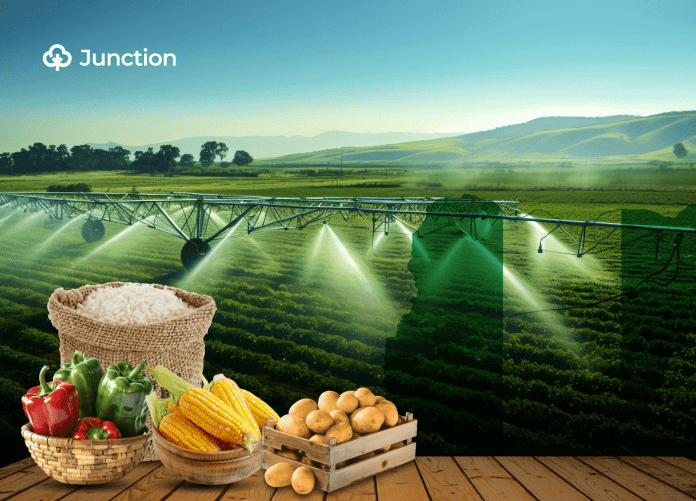News in Brief:
– Nigeria’s agricultural productivity has hit a 40-year low due to severe insecurity, climate change impacts, and poor infrastructure.
– Experts emphasise an urgent need for increased investment in technology, security, and storage to boost domestic production and ensure food security.
Nigeria’s agricultural sector is experiencing its most significant decline in productivity in over four decades, pushing the nation’s food security to a precarious point.
Experts warn that a fundamental shift in strategy is urgently needed to address the interwoven challenges of escalating insecurity, severe climate disruptions, and inadequate infrastructure hindering farming operations.
Deep dive into declining yields
A recent analysis by the Nigerian Economic Summit Group (NESG) highlights a stark reality: the growth of agricultural output has plummeted to its lowest level since the 1980s, a period when Nigeria embarked on its Green Revolution.
Effectively, data reveals a dramatic fall from an average annual growth of 16.7% between 2002 and 2006, to a meagre 1.2% between 2021 and 2024. This marks a sharp contrast even to the modest 2.9% growth observed in the early 1990s.
Essentially, the NESG’s findings underscore that Nigeria’s yields for crucial staple crops fall significantly short of global averages.
For instance, Nigerian farmers produce only 1.9 metric tonnes of rice per hectare, compared to a global average of 4.7. Similarly, wheat yields are a mere 1.1 metric tonnes per hectare against a global 3.7, and maize production stands at 2.0 metric tonnes per hectare while the global average is 5.9.
These glaring gaps translate into substantial deficits that necessitate costly food imports.
Subsequently, the NESG estimates Nigeria faces shortfalls of 2.4 million tonnes of rice, 5.7 million tonnes of wheat, and 1.1 million tonnes of maize, all of which must be sourced internationally to avert a deepening food crisis.
The unseen threat: insecurity on the farms
A primary driver of this agricultural downturn is the widespread insecurity plaguing rural communities.
MacDonald Ukah, the NESG’s thematic lead for agriculture, points to the profound fear and frustration among farmers.
“Farmers are terrified to visit their farms,” Ukah stated, stressing how ongoing violence from insurgents, bandits, and armed conflicts has forced many to abandon their livelihoods. This has led to a significant drop in output.
The NESG report confirms that years of insufficient progress in boosting agricultural output have been gravely compounded by a decade of worsening insecurity. Farmlands across the country lie desolate, with millions of naira in investments lost.
Farmers and agribusinesses are increasingly burdened by the cost of private security or reliance on local vigilante groups, further escalating operational expenses.
Climate change: an added burden
Also, compounding the crisis are the increasingly unpredictable impacts of climate change. Erratic rainfall patterns, devastating floods, and prolonged dry spells have introduced an alarming level of uncertainty into farming.
Paving the way forward: a new food equation
To revitalise Nigeria’s food system, the NESG advocates for a strict adherence to a ‘food balance equation.’ This framework prioritises robust domestic production, with imports serving solely to cover shortfalls and strategic reserves maintained to stabilise supply.
Exports, they contend, should only occur after value addition and once domestic surpluses are firmly established. “Productivity is the principal concern,” the NESG affirmed.
Therefore, the group and other stakeholders stress the critical need for tangible reforms beyond mere policy discussions. They propose key interventions including:
- Investment in Technology and Mechanisation: Equipping farmers with modern tools and techniques to scale up production.
- Improved Access to Finance and Insurance: Providing crucial financial support and risk mitigation for smallholder farmers vulnerable to weather and market fluctuations.
- Strengthening Rural Security: Ensuring farmers can cultivate their land without fear of violence.
- Expanding Storage and Processing Facilities: Reducing post-harvest losses and enhancing the stability of the food supply chain.
Finally, stakeholders agree that decisive action and significant investment are paramount to safeguard Nigeria’s food future and reverse the alarming decline in agricultural productivity.



